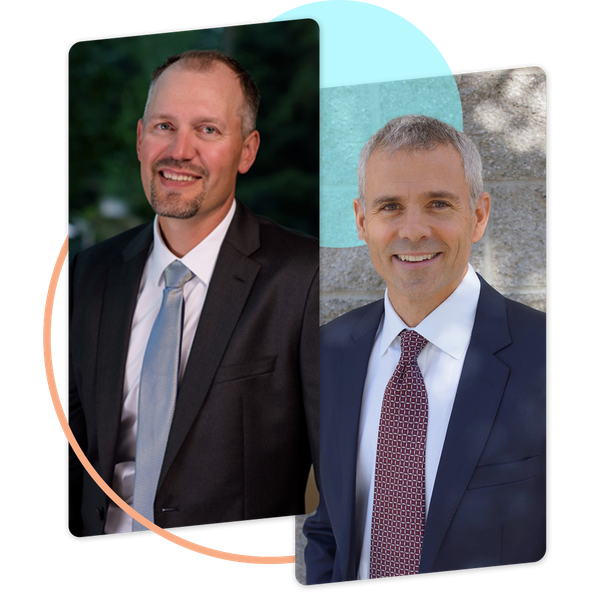Our Approach
Alaska Center For Oral + Facial Surgery
Alaska's Only AAAHC Accredited Oral & Maxillofacial Surgery Practice

Our Treatment Approach
Craniofacial and oral surgery procedures spanning dental implants and bone grafting to jaw surgery and TMJ treatments, are comprehensive surgeries that can make anyone feel a little nervous before the procedure. Not only do these procedures give the quality of life back, but they ’re also life-changing — and the doctors and staff at Alaska Center For Oral + Facial Surgery take this very seriously.

What To Expect At Alaska Center For Oral + Facial Surgery
Our doctors and staff will help put your concerns and nerves to rest the moment you walk into our clinic. Upon arrival, our friendly desk staff will assure that your pre-visit information is complete and that you are seated in your private consultation room on time for your surgeon visit. You’ll notice rooms modeled after hospital surgery rooms with state-of-the-art and innovative oral surgery technologies to get you the most accurate and precise diagnosis and treatment plan. Our dedicated surgical assistants will greet you and assist your surgeon in documentation of your treatment desires and personalized plan.
Doctors Nordstrom and Ueeck will spend the time you deserve to understand your unique situation and explain your treatment options. Every part of our process is transparent — we’ll give you clear payment and insurance options and will work together with you on the decisions being made on your treatment plan. Before proceeding with your surgery, our trained billing staff will spend one-on-one time with you clarifying payment options, including applicable insurance plans.
When it is time for your procedure, rest assured you have made a wise decision. Your surgeon will design a personalized anesthesia plan with your comfort and safety in mind. Whether you elect to complete your procedure with local “numbing” medication or would prefer intravenous (IV) sedation, so you can fall completely asleep during your surgery, you will be treated to painless, expert care in our state-of-the-art surgery suite.
With your procedure behind you, your surgery team will provide you with a personalized post-surgery care plan, with any necessary office follow up appointments, and 24-hour on-call access to your surgeon for any questions or concerns.
At Alaska Center For Oral + Facial Surgery, we pursue excellence and efficiency in every aspect of your patient experience. We provide patient-centered care from the initial consultation to post-operative care and will make your experience with us the best — not only will you feel at ease and comfortable with our doctors and the high level of care they provide, but the outcome is always incomparable.

Alaska Center For Oral Surgery + Facial Surgery Has the Most Highly Educated And Experienced Oral Surgeons
Our oral surgeons are highly-educated and provide services and specialties beyond common oral surgeries. Whether you’ve experienced trauma and pathology of the head and neck and require a particular technique or bone grafting, many years of study and in-the-field experience was put in to bring you the best skill in craniofacial surgery.
Not only are our oral surgeons trained in specific dental procedures, but have anesthesia training for your complete comfort.

For an unparalleled experience in oral surgery that boasts the industry-leading technology and the best doctors in the field, reach out and connect with our office today!
Our Approach
For Wisdom Teeth:
Oral and Maxillofacial surgeons have at minimum 4 or 6 years of formal training beyond the 4 years of dental school.

For Anesthesia/Sedation:
Oral and Maxillofacial Surgeons perform the majority of in office sedation within the practice of dentistry.
For Dental Implants:
Dental implants may be small, but they are not simple. There are dental implants that can be un-complicated, but just as often they can be complicated.
For Corrective Jaw Surgery:
Jaw surgery can be used to treat a wide variety of conditions, with excellent results and patient satisfaction. This includes but is not limited to: major and minor skeletal discrepancies, facial asymmetry, facial syndromes, growth abnormalities and post-traumatic deformities.

For Obstructive Sleep Apnea:
You may have Obstructive Sleep Apnea (OSA), and never heard of maxillomandibular advancement surgery. Despite this, it might be the treatment for your OSA.
For Facial Trauma Treatment:
Dr. Nordstrom’s surgical training was performed entirely out of 2 different Level 1 trauma centers (Legacy Emanuel Hospital, and Oregon Health and Sciences University).

For Bone Grafting:
Bone grafting is a surgical skill and should be provided by a surgeon, if it is to be performed most effectively. Bone grafting is often times most beneficial and cost-effective when done at the time of a tooth extraction.
Technology in Oral and Maxillofacial Surgery:
At AOFS, we utilize the newest and most advanced available technology in regards to patient evaluation and treatment. We are able to utilize a CT scanner in office that provides excellent 3 dimensional analysis in treatment planning for dental implants, corrective jaw surgery, obstructive sleep apnea surgery and pathology or trauma treatment.

Cleft Lip and Palate Surgery:
Dr. Nordstrom is unique in that he operates as a Staff Surgeon at The Alaska Native Medical Center, and also as a local Private Practice Surgeon. Having representation within both of these surgery communities allows him the broadest exposure to patients with cleft lip and/or palate available within Alaska.
Pathology of the Jaws and Face:
Tumors and cysts of the Jaws and face have special significance in treatment because the treatment and/or removal can be disfiguring, and disruptive to speech and eating.







